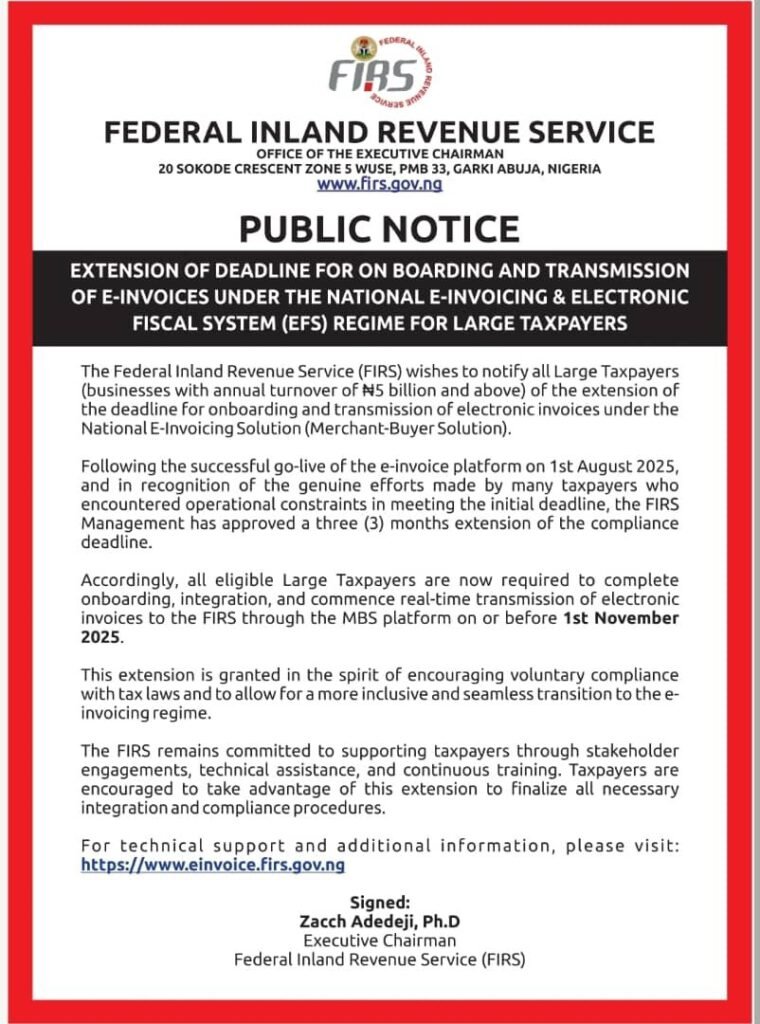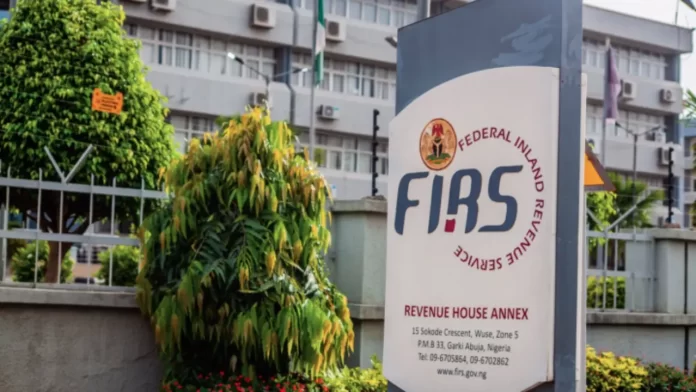The Federal Government has started a bold new phase in tax administration with the launch of a national Electronic Fiscal System (EFS).
The system went live on August 1, 2025, and is expected to close loopholes, make revenue collection more transparent, and reduce evasion.
The EFS uses a Merchant-Buyer Model — an electronic invoicing platform that tracks transactions in real time.
It gives the Federal Inland Revenue Service (FIRS) direct visibility into the authenticity, accuracy, and completeness of invoices issued by companies.
“MTN Nigeria became the first taxpayer to transmit live electronic invoices to the FIRS, officially ushering in the e-invoicing regime. Huawei Nigeria and IHS Nigeria have also concluded test transmissions and are set to go live in the coming days,” the agency confirmed.
Big Firms Go First
In the first phase, only companies with an annual turnover of ₦5 billion and above are required to use the system.
FIRS says this will make compliance easier, faster, and more transparent for top taxpayers, before expanding to smaller firms.
Already, 1,000 companies — 20% of the more than 5,000 eligible firms — have joined and begun integration. The rest must onboard before the extended November 1, 2025 deadline.
The original August 1 deadline was shifted by three months to help firms that made genuine efforts but faced operational hurdles.

Support and Expansion
In partnership with the National Information Technology Development Agency (NITDA), FIRS has brought in licensed service providers to act as system integrators and access point providers. They will help companies with onboarding, integration, and transmitting invoices.
The rollout will continue in phases, with medium-sized and emerging businesses joining later. According to FIRS, this is in line with global best practices and the Nigeria Revenue Services Reform Act’s goals of harmonising revenue reporting.
President Bola Tinubu has backed the reform strongly. His administration has set up a Presidential Committee on Fiscal Policy and Tax Reforms led by Taiwo Oyedele, to tackle multiple taxes, poor coordination, and loopholes.
From January 2026, four new laws, including the Nigeria Tax Act and Tax Administration Act, will take effect. They will enforce digital registration, stricter reporting, and mandatory disclosure of beneficial ownership to unmask hidden income behind shell companies.
Is this new e-invoicing regime enough to finally end the culture of tax evasion, or will big players still find new ways to beat the system? Express your views.Rate, Like 👍, Comment💬, share this article, Follow us on our social media handles, and Submit your own story to get featured and earn rewards!







